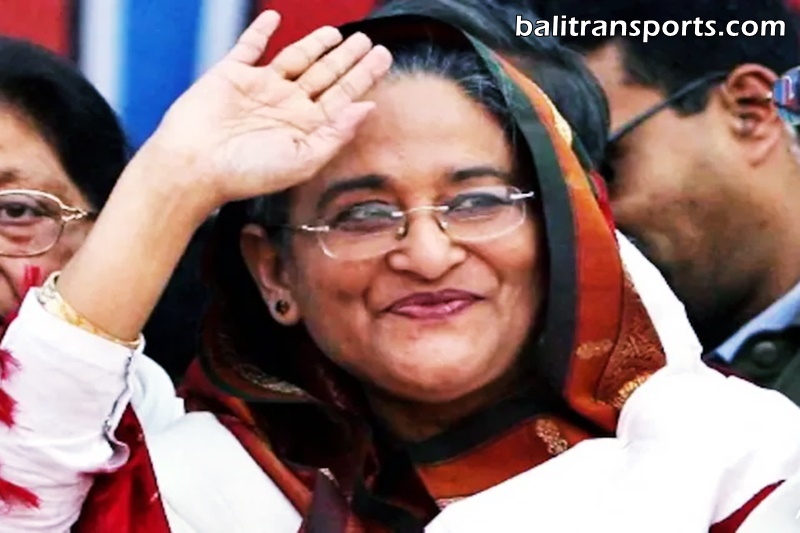Friday | May 16, 2025
Bangladesh’s Election Commission has formally revoked the registration of the Awami League, the former ruling party led by ousted Prime Minister Sheikh Hasina. This unprecedented move effectively bars the party from participating in the upcoming national elections, which are anticipated to take place no later than June of next year. The cancellation of the party’s registration marks a dramatic escalation in the country’s shifting political landscape and represents a significant setback for one of the two dominant political forces in the country’s history.
The decision was announced Monday, just hours after the country’s interim administration, led by Nobel Peace Prize laureate Muhammad Yunus, issued a sweeping ban on the Awami League and all affiliated organizations. According to an official notification from the Ministry of Home Affairs, all political activities associated with the party — whether online, in the media, or in public — have been prohibited. This includes rallies, protests, meetings, publications, and any form of digital or social media outreach. The ban is to remain in place until an ongoing legal trial against the party’s leadership and members concludes in a special anti-terrorism tribunal.
This notification followed a Cabinet decision taken over the weekend under the provisions of Bangladesh’s Anti-Terrorism Act, which has been invoked to justify the suppression of party operations. The Ministry emphasized that the directive would take “immediate effect,” thereby leaving no room for transitional arrangements or appeals. The government’s justification centers on allegations that the party was involved in acts of violence and terror during the political unrest that led to Hasina’s ouster in 2024.
In a separate announcement also made on Monday, the Election Commission confirmed that it would no longer permit the Awami League to contest future elections. In Bangladesh, political parties must maintain official registration with the Election Commission to be eligible to run in elections. The deregistration of the Awami League thus not only excludes it from electoral politics but also denies millions of its supporters a political platform in the near term.
A senior adviser to the interim government warned that individuals expressing support for the Awami League, especially on digital platforms, would face legal consequences. The adviser noted that the government has begun monitoring social media and other digital communication channels and would arrest individuals found posting pro-Awami League content, under the same Anti-Terrorism Act used to justify the party’s ban.
The Awami League, in a statement issued Sunday, denounced the government’s actions as authoritarian and divisive. It accused the interim authorities of “stoking division within society, strangling democratic norms, fueling an ongoing pogrom against dissenters, and strangling inclusivity.” The party framed the government’s decisions as part of a broader crackdown on democracy and political pluralism in Bangladesh, warning that such steps could destabilize the country further.
Historically, the Awami League has been one of the two central pillars of Bangladeshi politics. Founded in 1949, it played a leading role in the country’s struggle for independence from Pakistan in 1971. Its leader, Sheikh Hasina, is the daughter of Sheikh Mujibur Rahman, Bangladesh’s founding father. The party has been instrumental in shaping modern Bangladesh’s political identity, although it has also faced criticism over authoritarian tendencies during its long rule.
Sheikh Hasina and many senior members of her administration have been in exile since August 2024, following violent protests that erupted over her 15-year tenure. She fled to India on August 5, along with several former Cabinet ministers and senior party leaders, amid mounting pressure and accusations that the government was responsible for deadly crackdowns on demonstrators during July–August 2024.
According to a February report by the United Nations Office of the High Commissioner for Human Rights, as many as 1,400 people may have been killed during three weeks of anti-government protests. The UN urged restraint and called on the interim Bangladeshi authorities to avoid measures that would hinder democratic participation. In particular, it recommended against banning political parties outright, warning that such actions could erode the foundations of a multi-party democracy and effectively disenfranchise large segments of the population.
Since the ouster of Hasina, the Awami League has faced relentless pressure, both politically and physically. Its offices across the country, including its central headquarters in Dhaka, have been ransacked or set ablaze. The party alleges that the interim government has orchestrated attacks by sponsoring violent mobs, targeting not only political offices but also the homes and businesses of its members. Thousands of party supporters have reportedly been detained, and the party claims that numerous activists have been killed in what it describes as politically motivated violence.
Muhammad Yunus, who assumed leadership of the transitional government amid the political turmoil, has stated that national elections will likely take place either in December of this year or in June 2026 at the latest. He has framed the interim period as one of national healing and democratic reform, although critics argue that the banning of a major political party undermines that very premise.

